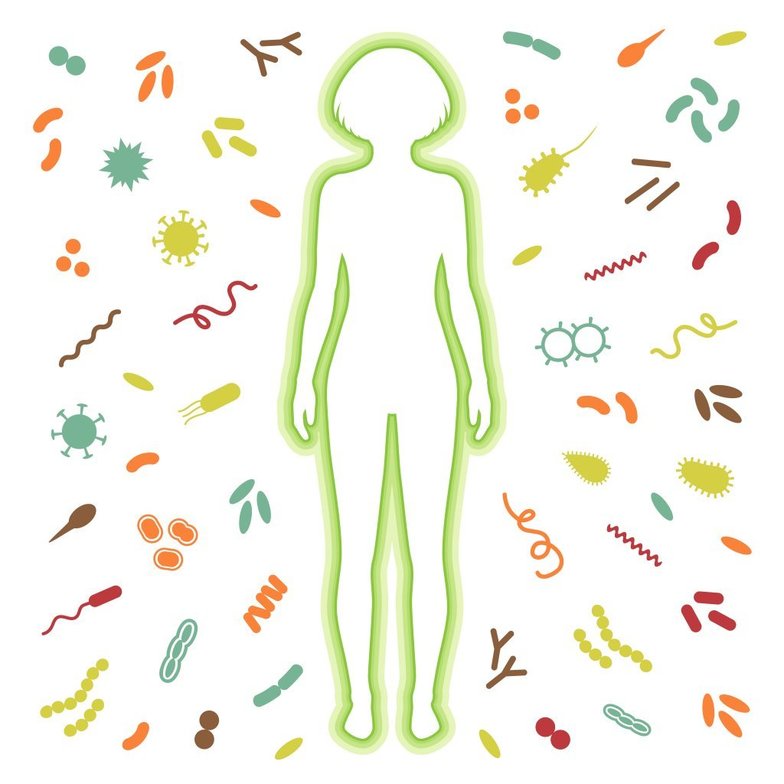
Your immune system is intelligent, dynamic, and wise. The main function of any immune system is to distinguish self from non-self. This is not as easy as it sounds since the human body is comprised of approximately 90% bacterial &/or viral cells, (ie. not ‘self’), and only about 10% of cells are, in fact, ‘you’. This natural symbiosis requires balance, dynamism, and coordination to work effectively. A healthy immune system is also responsible for self-regulation at both the micro, (cell-system), and macro, (organ-system), levels. This means that your body should be able to heal from a wound without over-correcting into chronic inflammation or reproduce cells without triggering malignancy. An intelligent immune system is the key to health and innate self-repair. It is the holy grail of natural medicine.
To intervene or not intervene, that is the question!
In both conventional and alternative medicine, there are plenty of interventions to support the immune system. When the immune system is under-active, (ie. you are prone to frequent infections, you are slow to heal, your infection is severe and/or causing complications that put you at long-term risk), intervention to stimulate the immune system is recommended. Conversely, when the immune system is hyperactive, (ie. in the case of allergies, certain types of cancer, or inflammatory disorders), intervention to calm and correct the immune response is recommended. In most cases of acute infection, a healthy immune system is capable of resolving the issue without intervention, given time and rest to heal. Part of our work as physicians in natural medicine is to educate our patients about when and why to intervene with natural and/or conventional medicine, and how to help restore a healthy immune response so as to reduce the need for future intervention.
There are many types of highly effective antibiotic, anti-fungal, and anti-viral medicines that are found in nature and that we recommend if needed to support an immune system that requires intervention. It is important to discern at what point a fever is too high, an infection has run too long, or the symptoms are too severe and warrant outside support in the form of medicine. It is also important to understand the role of certain types of natural medicines that are used preventatively to stimulate innate immunity during times of high risk: ie. flu season, seasonal changes from warm to cold, reduction in exposure to natural sunlight, and times of increased stress. (Remember that even *good stress, such as planning a wedding or a holiday party require more energy from our bodies and can compromise our immune system). Natural medicines are designed to stimulate the immune system, alter the biochemical environment so that is it inhospitable to infectious agents, and support the body’s ability to buffer stress so as to mitigate disruption in innate immune function.
 The Paradox of Immunity:
The Paradox of Immunity:
The immune system is comprised of two distinct but complementary systems: innate immunity and acquired immunity. The innate immune system is our first line of defence against invading organisms. The adaptive immune system acts as a second line of defence and affords protection against re-infection to pathogens which we have been previously exposed. Innate immunity is considered a non-specific response whereas adaptive immunity is considered very specific. Even though these two arms of the immune system have distinct functions, there is an interplay between the two. Components of the innate immune system influence the adaptive immune system and vice versa. Additionally, the type of signaling within these two systems is much more similar than immunologists of the past had once assumed.
Protective immunity is not solely based on immunologic memory. Protective immunity is humoral, (ie. fluid), in nature and can be transferred for a short-term (e.g. maternal immunity transfer, immune serum transfer). Although humoral immunity is believed to be antibody-based, paradoxically, antibodies are neither necessary nor sufficient to confer immunity. Protective serum titer tests do not measure antibodies per se, they measure protective activity. It remains a possibility that what is being measured is yet an unknown carrier of immunity. Immunology still has a long way to go in our quest to truly understand the fundamental basis of immunity. In natural medicine, we understand that the immune response is holistic and therefore interventions to treat infections are always used in a way that supports the body as a whole.
Immunity is a general term in medicine that refers to the sum of all defence mechanisms of a live organism against foreign agents, especially infectious agents. A healthy, balanced immune state is when all the mechanisms used are effective. A pathological state occurs when these same defence mechanisms are overloaded or disrupted. Immunity could be defined as the possibility for a person to make a distinction between what the body accepts or rejects.
Tuning the immune system is the work that we are focused on in natural medicine. Your body is designed for self-repair. The intricacy of the innate and adaptive immune systems is something that we are still just beginning to understand as students of immunology. Your body can theoretically heal from the exposure to any pathogen, no matter how virulent or pervasive the exposure if the immune system is working at full strength. However, not a single one of us lives in a perfect world. Our immune systems are exposed to stress in a variety of ways on a daily basis and to some degree, we are all immunocompromised. Conferring immunity requires a balance between letting your body learn from exposure to pathogens and supporting the immune process when necessary.

Being challenged can make you stronger
Just as we strengthen our muscles through the challenge of exercise, and we strengthen our intelligence through the challenge of study, so too do we strengthen our immunity through the challenge of exposure to pathogens. Like any challenge, it is critically important to discern when help is required or the challenge is overwhelming. But in general, in the same way that every other system in our body improves with work, so too does the immune system. All diseases have the potential to play a sensitizing or protective role in living organisms. In our modern world, we often accept the false premise that any exposure to germs and pathogens is inherently bad, when in reality, we rely on wide-exposure to bacteria to thrive metabolically. Additionally, exposure to pathogens often affords immunity, not only from the invading organism, but provides an immune response which in turn affords a protective force in preventing certain types of autoimmune diseases. Although exposure to pathogens always comes with inherent risk from acute symptoms, living in a world that is overly antiseptic creates risk in others ways, in that our immune system no longer benefits from the learning that can come only through natural exposure to germs.
When the Body Goes Wrong: Adaptive, Dysfunctional Patterns of the Immune System
Why are some people “always sick?” Why is one person more likely to develop an infection than another? Exposure to pathogens alone cannot create illness. Nor do stress or genetic predispositions alone manifest a state of disease. The truth lies somewhere in the middle and is best expressed through this relationship: Exposure + Susceptibility = Infection
The notion of terrain, (ie. susceptibility to disease), is a term commonly used in both natural and conventional medicine. The concept of terrain means that given your environment, (physical habitat, physiological make-up, psychosomatic, and etiological factors), you have a unique susceptibility or predisposition to certain types of disease.
We’re here to help, if you need it!
Natural medicine, (diet, stress-management, plant-based medicines, hydrotherapy, acupuncture, massage therapy, homeopathy), is designed in every way to support the immune system to treat and prevent disease. Naturopathic and homeopathic physicians spend their entire professional careers learning how to restore and correct immune function. Natural medicine promotes the resolution of inflammation, resolution of dysbiosis, the integration of the immune system and the microbiome, and the restoration of health. It supports the adaptive network in the body which helps us learn from exposure to pathogens and become better as a result of such exposure. It has demonstrated efficacy in treating, (and preventing), acute, chronic and infectious disease. If you want to explore how natural medicine can support your body’s immune system, we are here to help!




